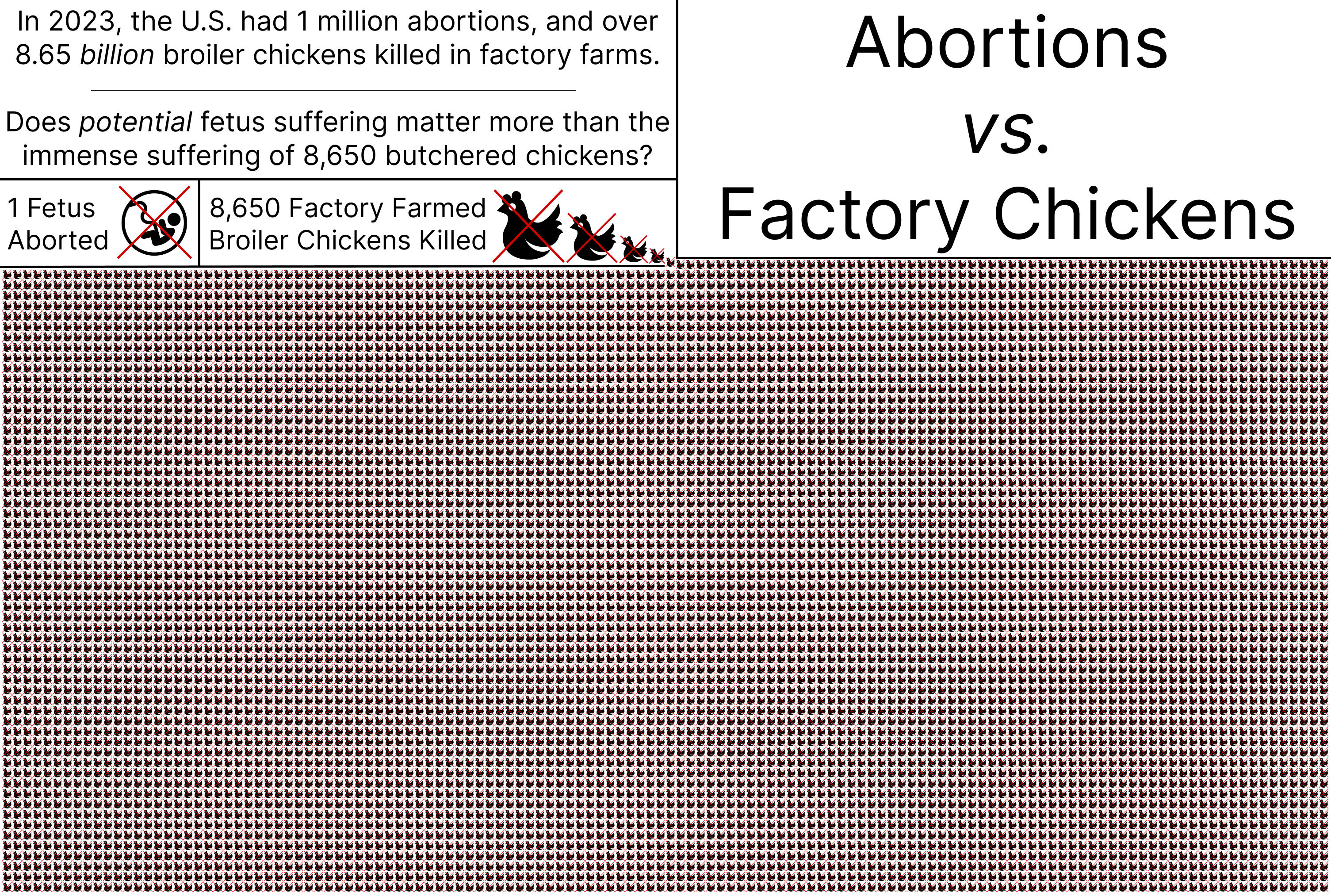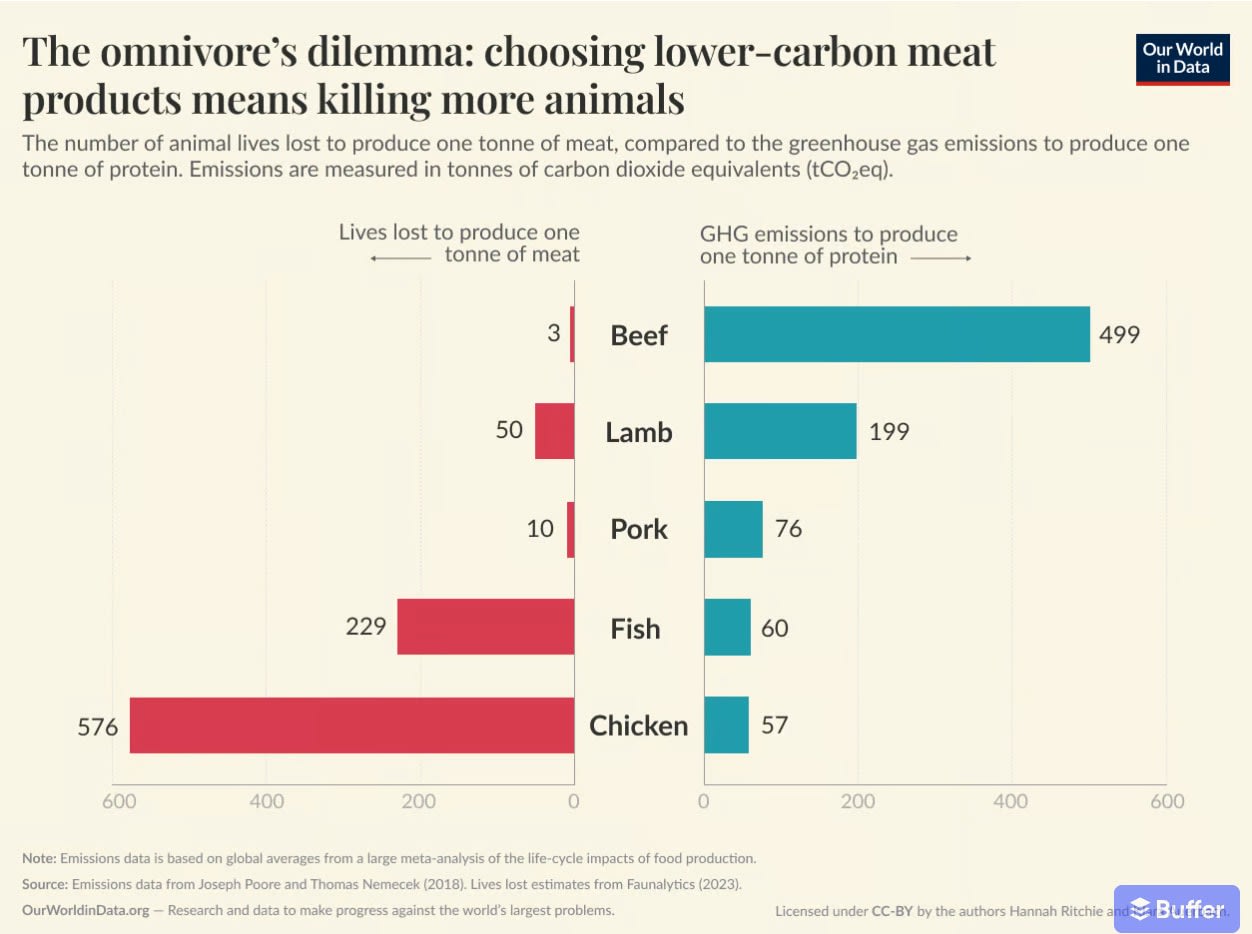As I was driving the other day, I saw a group of protestors in front of the local Methodist church.
"God Hates Abortion! Pray to End the Murder!"
Various signs to this effect were being held up triumphantly by the rather old people who had decided that this was their best use of a Tuesday morning.
This got me curious; how big of an issue is abortion? I realized I didn't know how many abortions happened per year in the U.S. I stopped by the side of the road to look this up, and was flabbergasted to learn that the number of abortion in the U.S. in 2023 was a little over 1 million.
There were 1 million abortions in 2023.
If you're anything like me, that number is probably a little shocking. I don't know what I expected, but probably more like a couple hundred thousand.
For reference, there were about 600,000 malaria deaths in 2023. And that's world-wide.
So if:
- Fetuses counted as people(highly debatable)
- Fetuses felt as much suffering when being aborted as a malaria victim did when dying(also highly debatable)
- We don't care about the potential future suffering of the parents or the child post-birth from them not having an abortion(so simplifying as to make this CoT wrong?)
- Preventing abortion is more tractable than malaria prevention(which I would guess is likely true)
Then, that would make abortion a bigger issue than malaria.
I was still curious about how big of a problem abortions were compared to other EA causes, so I looked into factory farming on a vague notion that other EAs thought it was an important problem.
And wow, was I not prepared for the sheer magnitude disparity.
From the USDA Livestock and Meat Domestic Data report(the important section being the Slaughter Statistics), I learned that there were ~9.6 billion land animal deaths from Jan-Nov of 2023.[1]
Of these 9.6 billion land animals, ~8.65 billion were just broiler chickens. These means that broiler chickens accounted for almost 90% of land animal deaths in 2023.
In other words, for every abortion in the U.S. in 2023, there were 8,650 broiler chickens that were killed under horrendous conditions.
For each fetus aborted, there were 8,650 broiler chickens that were slaughtered.
This absolutely floored me.
I realized that if you were even arguing about abortion, then you must value human fetuses(which look a lot like chicken fetuses) 8,650 times more than tortured, murdered chickens.[2][3]
I wanted to illustrate this difference in magnitude more clearly, so I made the following graphic:

Conclusion
It was fascinating doing my own cause prioritization research and not just deferring to 80,000 Hours' or GiveWell's views. I definitely updated towards animal welfare being a top priority. Still solidly behind existential risk, but definitely higher priority than, say, malaria or abortion.
I mostly gained more intuition into how cause prioritization and comprehending differences in magnitude works in practice.
Thanks for reading! If I somehow got my numbers wrong or made a bad assumption, please for the love of all that is precious tell me!
- ^
Keep in mind, this is likely to be an underestimate of the total number. This is only counting those animals that died in federally inspected and commercial farms; this does mean that those 9.6 billion are likely to be the worst treated and factory farmed.
- ^
Or maybe you think that abortion bans seem 4 orders of magnitude more tractable than factory farming bans, which seems extremely unlikely to me.
- ^
This does rely on disregarding the lives cut short by abortion, which I'm very uncertain as to how much to value in either direction. Because of this, I chose to just focus on the suffering of chickens vs. fetuses.



You make a good point, and I'm not advocating for restricted abortion access in any way.
I was more trying to take the POV of those protestors; under their model of the world, each abortion is a murder(potentially with great suffering associated). I wanted to find out whether abortion would be an important issue to work on given that starting assumption that gave no weight to the future of the parents or children.
What I found was that, even when using the strongest case of abortion(albeit, that didn't incorporate the potential value of a future human life), it still paled in comparison to other issues such as animal welfare.
Thank you for your constructive criticism! I recognize that this is a contentious issue, and I'll try to soften the language a bit and clarify my very overly-simplifying assumptions.